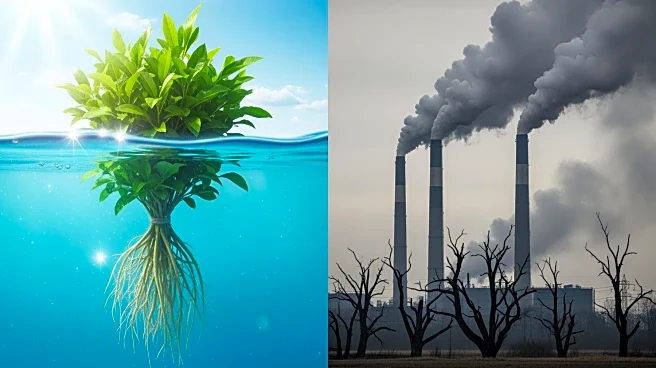What's Happening?
Fossil fuels, comprising coal, oil, and natural gas, have been integral to the development of modern industry but pose significant environmental challenges. They are the largest source of greenhouse gas emissions,
contributing to global warming and climate change. The burning of fossil fuels releases carbon dioxide and other pollutants, leading to air pollution, health issues, and environmental degradation. The extraction and use of fossil fuels disrupt ecosystems, contaminate water sources, and lead to soil erosion.
Why It's Important?
The environmental impact of fossil fuels is profound, affecting air quality, public health, and climate stability. Fossil fuel emissions account for a significant portion of air pollution-related mortality rates, with millions of deaths annually attributed to respiratory and cardiovascular diseases. The depletion of nonrenewable resources also poses a long-term threat to sustainability, highlighting the urgent need for a transition to renewable energy sources to mitigate these impacts.
What's Next?
Efforts to transition to cleaner energy sources, such as wind, solar, and hydrogen, are essential to reducing fossil fuel emissions and achieving sustainable development goals. International cooperation and enforcement of environmental treaties are crucial to minimizing further environmental damage. The development of alternative energy technologies and policies that reflect the true cost of fossil fuel use are necessary to ensure a sustainable future.
Beyond the Headlines
The transition to renewable energy offers opportunities for economic growth and innovation in sustainable technologies. It also addresses environmental justice issues, as marginalized communities are disproportionately affected by fossil fuel pollution. By reducing reliance on fossil fuels, we can improve public health, protect ecosystems, and create a more equitable and sustainable world.











